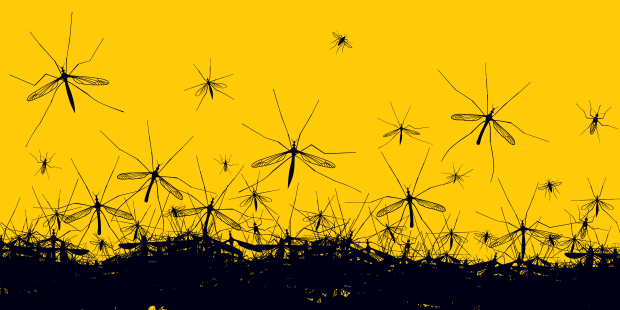This winter’s heavy rains mean more potential breeding spots for mosquitoes, which is why Santa Cruz County Mosquito and Vector Control (MVC) is putting locals on high alert for the spring and summer months.
Keeping mosquitoes out of your yard is always a good idea—besides their itchy bites and annoying buzz, they can carry West Nile Virus (WNV). WNV is transmitted from birds to humans via bites from infected mosquitos. Last year, MVC detected two WNV-positive birds and three WNV-positive mosquito samples between June and August 2016.
Because mosquitos love to breed in yard containers full of rainwater that you never quite got around to emptying, draining any such containers is a crucial first step. Mosquitoes need water to reproduce, and the MVC specifically calls out bird baths, neglected swimming pools or spas, old tires, landscape drains, animal water bowls, buckets, tarps, and children’s toys as places they often lay their eggs. Dumping, draining or replacing water from them once a week helps prevent mosquito breeding.
If containers are too large to dump or store upside-down, there are BTI (Bacillus thuringiensis israelensis) products like Mosquito Dunks or Mosquito Bits which are labeled organic by the EPA, and are available at hardware or garden stores.
MVC is also monitoring for invasive Aedes mosquitoes, which can transmit Zika, dengue, and chikungunya. None have yet been detected in Santa Cruz County.
Locals are asked to report dead birds to the California Department of Public Health online at westnile.ca.gov or 877-WNV-BIRD. Once a bird is reported to the state, MVC picks up the bird for testing.
The MVC welcomes questions about mosquitos and requests for free mosquito-eating fish for your pond or water feature; 454-2590.

